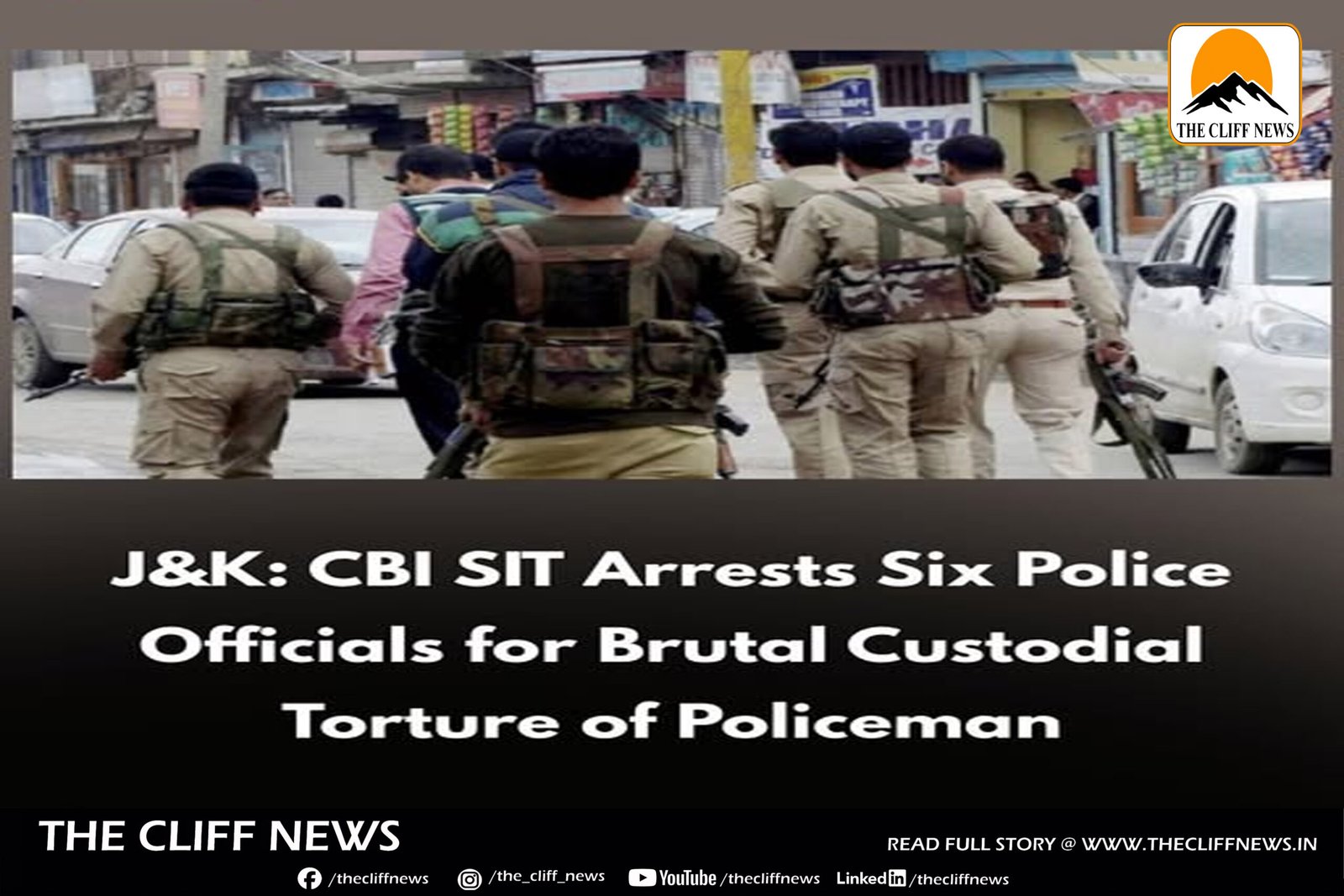New Delhi / Srinagar — In a case the Supreme Court described as “deeply shocking to the conscience of this court,” the Central Bureau of Investigation (CBI) on Wednesday arrested eight Jammu and Kashmir Police personnel, including a Deputy Superintendent of Police, an Inspector, and an Assistant Sub-Inspector, for the custodial torture of Constable Khursheed Ahmad Chohan.
The arrests follow the Supreme Court’s July 21 order directing the CBI to register an FIR, ensure accountability, and provide compensation to the victim.
The Case: Brutality at Kupwara Interrogation Centre
Chohan, a serving constable, was summoned from Baramulla to the Joint Interrogation Centre, Kupwara, in February 2023 in connection with a narcotics probe.
- He was held in illegal custody from Feb 20–26, 2023.
- During detention, he was beaten with iron rods and sticks, subjected to electric shocks, and mutilated, including genital injuries and chilli powder insertion.
- On Feb 26, after sustaining life-debilitating injuries, he was admitted to SKIMS Hospital.
The FIR names DSP Aijaz Ahmad Naiko, SI Riyaz Ahmad, and six other officers. A Special Police Officer involved has been disengaged.
Supreme Court’s Observations
The bench of Justices Vikram Nath and Sandeep Mehta called it an egregious violation of Article 21 (Right to Life and Liberty):
- Rejected UT’s claim of “self-inflicted” injuries, dismissing the suicide theory as untenable.
- Ordered ₹50 lakh compensation to Chohan, recoverable from the accused officers.
- Directed departmental proceedings against the officers post-CBI probe.
- Ordered a comprehensive review of systemic issues at the Kupwara interrogation centre, including CCTV footage analysis, forensic checks, and interrogation of personnel.
Wider Impact
This is one of the rare instances where senior J&K police officers face custodial torture charges, underlining judicial concern over abuse within interrogation centres.
Human rights advocates say the ruling could become a watershed case, compelling stricter scrutiny of custodial practices in conflict zones.



